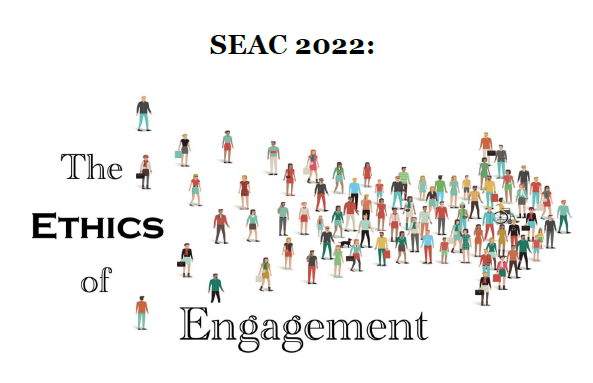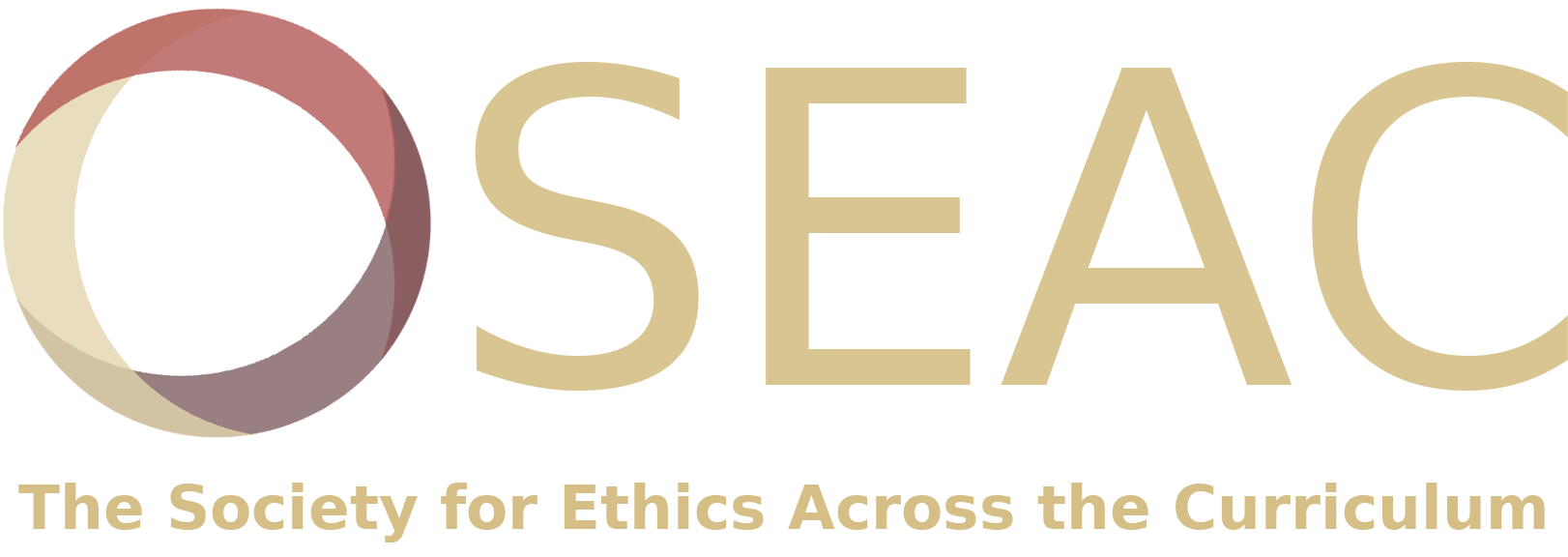
Concurrent Session 2A
Location
Ford Ballroom A, The Inn at Ole Miss
Start Date
6-10-2022 1:15 PM
End Date
6-10-2022 2:25 PM
Description
- Ethics for Adults with Intellectual and Developmental Disabilities (Virtual) / Rachel Levit Ades, Arizona State University
Though we rightly consider bringing ethics to the general population, children, and incarcerated people, we rarely discuss what it would mean to offer ethics to adults with intellectual and developmental disabilities (IDD). People with IDD, unlike other populations we wish to reach, will often never encounter ethics in an academic setting. However, doing ethics with people with IDD is possible, rewarding, and important. The virtues of an ethics education are relevant and valuable to their lives, and the insights they can offer ethicists deserve to be taken seriously. Ethicists also have an obligation to do this work; philosophy in particular has been antagonistic towards people with IDD, often using examples of people with cognitive disabilities in distasteful thought experiments and perpetuating rhetoric which privileges normative thinking above all else. We have so far refused to engage seriously with the lived experience and insight of people with IDD, let alone provide them with the tools and knowledge we so value. This presentation provides inspiration and guidance for ethics-focused public philosophy that engages adults with IDD. I present insights and questions from the five “Big Ideas” classes I have created and taught, as well as practical guidance that I hope will encourage other ethics educators to bring similar programs to their communities. - Un/Ethical Assumptions: Engagement and Research with Adults with Intellectual Disabilities (Virtual) / Nicole DeClouette, Georgia College and State University; Kelley Ditzel, Georgia College and State University
People with intellectual disabilities have traditionally been a protected class by institutional review boards, ethically charged with protecting “vulnerable” human subjects in research projects. Recent research, however, calls into question the assumptions of vulnerability for a whole class of people. Like other protected groups, there exists a broad range of experiences within the class, leaving some researchers to ponder these questions: Is it ethical to think of individuals as a homogenous group? Is it unethical to exclude people with intellectual disabilities in research? What are we missing by excluding the perspectives and experiences of people with intellectual disabilities? Using these questions to frame the presentation, presenters will share the findings of a research study that involved adults with intellectual disabilities, their family members, and staff members from a creative arts-focused day program that serves adults with disabilities. The program was closed during the beginning months of the COVID pandemic, and then moved its programming to a virtual platform. The story of this transition will be told through the lens of one participant, Chloe (pseudonym), a woman with significant support needs related to her autism. Due to her support needs, Chloe was not initially considered a viable candidate for virtual services. When she was eventually provided access to virtual services, she blossomed into an individual who was barely recognizable by those who knew her previously. Chloe’s story makes a case for the ethical engagement and inclusion of the perspectives and experiences of adults with intellectual disabilities in research studies.
Session Chair: Elaine E. Englehardt, Utah Valley University
Relational Format
conference proceeding
Recommended Citation
Ades, Rachel Levit; DeClouette, Nicole; Ditzel, Kelley; and Englehardt, Elaine E., "Concurrent Session 2A" (2022). Society for Ethics Across the Curriculum Conference. 8.
https://egrove.olemiss.edu/seac/2022/schedule/8
COinS
Oct 6th, 1:15 PM
Oct 6th, 2:25 PM
Concurrent Session 2A
Ford Ballroom A, The Inn at Ole Miss
- Ethics for Adults with Intellectual and Developmental Disabilities (Virtual) / Rachel Levit Ades, Arizona State University
Though we rightly consider bringing ethics to the general population, children, and incarcerated people, we rarely discuss what it would mean to offer ethics to adults with intellectual and developmental disabilities (IDD). People with IDD, unlike other populations we wish to reach, will often never encounter ethics in an academic setting. However, doing ethics with people with IDD is possible, rewarding, and important. The virtues of an ethics education are relevant and valuable to their lives, and the insights they can offer ethicists deserve to be taken seriously. Ethicists also have an obligation to do this work; philosophy in particular has been antagonistic towards people with IDD, often using examples of people with cognitive disabilities in distasteful thought experiments and perpetuating rhetoric which privileges normative thinking above all else. We have so far refused to engage seriously with the lived experience and insight of people with IDD, let alone provide them with the tools and knowledge we so value. This presentation provides inspiration and guidance for ethics-focused public philosophy that engages adults with IDD. I present insights and questions from the five “Big Ideas” classes I have created and taught, as well as practical guidance that I hope will encourage other ethics educators to bring similar programs to their communities. - Un/Ethical Assumptions: Engagement and Research with Adults with Intellectual Disabilities (Virtual) / Nicole DeClouette, Georgia College and State University; Kelley Ditzel, Georgia College and State University
People with intellectual disabilities have traditionally been a protected class by institutional review boards, ethically charged with protecting “vulnerable” human subjects in research projects. Recent research, however, calls into question the assumptions of vulnerability for a whole class of people. Like other protected groups, there exists a broad range of experiences within the class, leaving some researchers to ponder these questions: Is it ethical to think of individuals as a homogenous group? Is it unethical to exclude people with intellectual disabilities in research? What are we missing by excluding the perspectives and experiences of people with intellectual disabilities? Using these questions to frame the presentation, presenters will share the findings of a research study that involved adults with intellectual disabilities, their family members, and staff members from a creative arts-focused day program that serves adults with disabilities. The program was closed during the beginning months of the COVID pandemic, and then moved its programming to a virtual platform. The story of this transition will be told through the lens of one participant, Chloe (pseudonym), a woman with significant support needs related to her autism. Due to her support needs, Chloe was not initially considered a viable candidate for virtual services. When she was eventually provided access to virtual services, she blossomed into an individual who was barely recognizable by those who knew her previously. Chloe’s story makes a case for the ethical engagement and inclusion of the perspectives and experiences of adults with intellectual disabilities in research studies.
Session Chair: Elaine E. Englehardt, Utah Valley University


